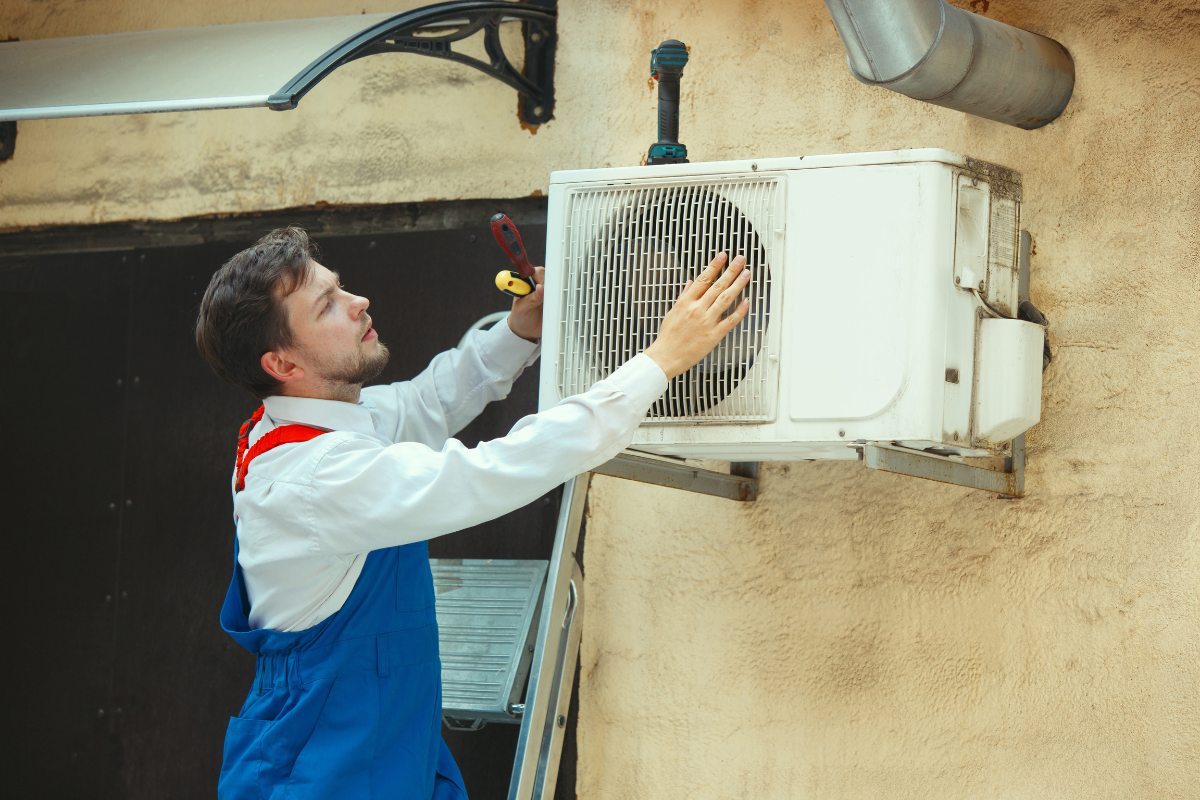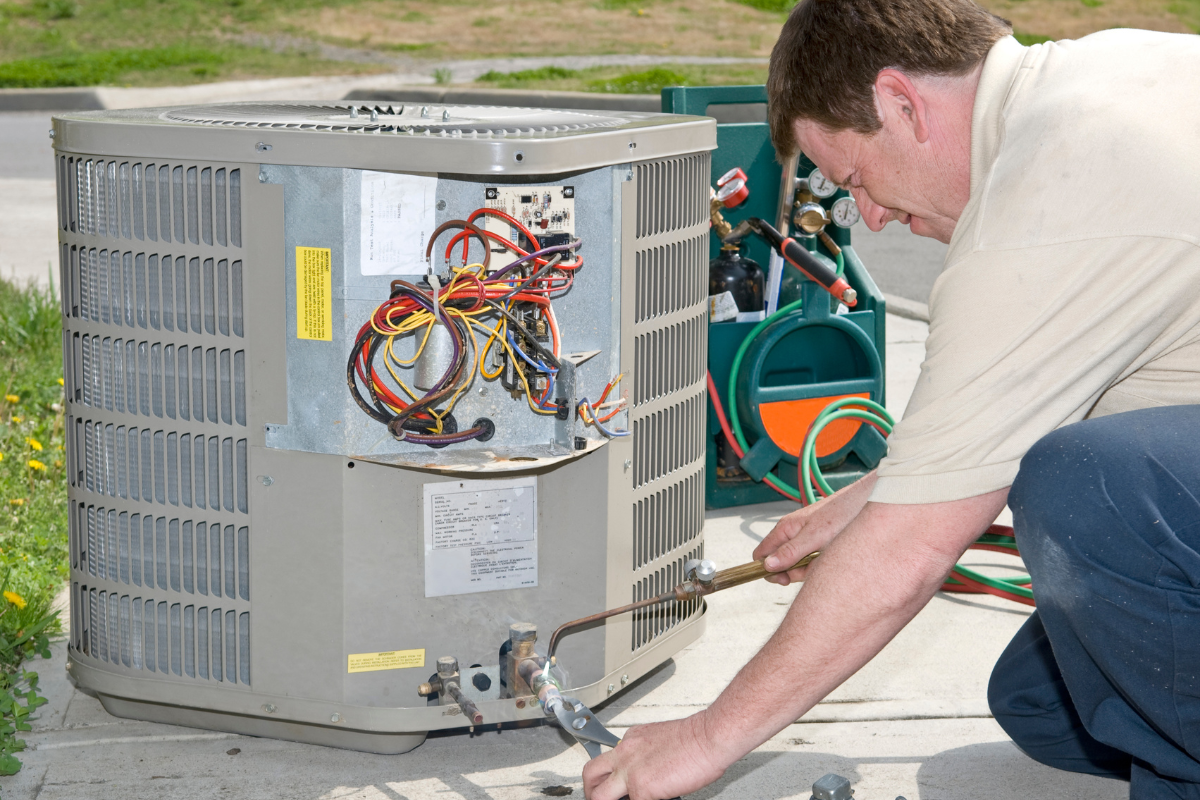

Introduction
In today’s world, where we spend an overwhelming amount of time indoors, the importance of indoor air quality can’t be overstated. With air conditioning units becoming an essential part of our daily lives, understanding how they influence air quality is crucial. This article will delve into Why Indoor Air Quality Matters and How It Relates to Your AC Unit, exploring various aspects of air quality, its impact on health, and how proper maintenance of your air conditioning unit can help ensure a healthier living environment.
Why Indoor Air Quality Matters and How It Relates to Your AC Unit
Indoor air quality (IAQ) refers to the condition of the air within buildings as it relates to the health and comfort of building occupants. Poor IAQ can lead to a plethora of health issues ranging from minor irritations to serious respiratory problems.
The Link Between AC Units and Indoor Air Quality
Air conditioning systems play a pivotal role in maintaining comfortable temperatures indoors, but they also significantly impact indoor air quality. Properly functioning AC units filter out pollutants and allergens from the outdoor air; however, neglecting regular maintenance such as AC repair or air conditioner repair can result in a decline in IAQ.
How Does Your AC Improve Indoor Air Quality?
Filtration: Most modern AC units come with filters designed to trap dust, pollen, mold spores, and other particulates. Ventilation: They help circulate fresh air throughout your home while expelling stale air. Humidity Control: By reducing humidity levels, they prevent mold growth and mitigate other moisture-related issues.The Consequences of Poor Indoor Air Quality
Poor IAQ can lead not just to discomfort but also significant health concerns:
- Respiratory Problems: Chronic exposure can exacerbate asthma and allergy symptoms. Fatigue: Poor ventilation can lead to tiredness and reduced productivity. Long-term Health Risks: Prolonged exposure may lead to serious conditions like heart disease or lung cancer.
Understanding Common Indoor Air Pollutants
Types of Pollutants that Affect IAQ
Understanding what contributes to poor indoor air quality is vital for effective management:
- Volatile Organic Compounds (VOCs): Emitted from paints, cleaning supplies, and furnishings. Particulate Matter: Dust, pet dander, and smoke particles that linger in the air. Biological Contaminants: Mold spores, bacteria, viruses that thrive in damp environments.
How HVAC Systems Help Reduce Pollutants
An efficient HVAC system equipped with high-quality filters can drastically reduce the concentration of these pollutants indoors:
Regular maintenance ensures that filters are clean and effective. Upgrading filters to HEPA standards can capture smaller particles often overlooked by standard models.The Role of Humidity in Indoor Air Quality
How Humidity Affects Comfort Levels
Humidity plays a critical role in determining how comfortable you feel indoors:
- High humidity makes it feel hotter than it actually is. Low humidity can cause dry skin and respiratory discomfort.
AC Units as Dehumidifiers
Did you know your AC unit serves as a dehumidifier too? Here’s how:
As warm air passes over cold evaporator coils, moisture condenses and drips away. This process not only cools the air but also reduces humidity levels effectively.Signs You Might Need AC Repair Services
Keeping your AC unit in top shape is imperative for maintaining good indoor air quality:
Common Indicators That Your AC Needs Attention
Unpleasant odors emanating from vents Increased energy bills without increased usage Uneven cooling throughout different roomsWhen Should You Call for Tampa AC Repair?
If you notice any signs above or experience decreased airflow or unusual noises coming from your unit—don’t ignore them! Early detection through professional services like those offered by local providers ensures optimal performance.
Regular Maintenance is Key for Optimal Performance
Importance of Routine Checks on Your HVAC System
Just like any other appliance in your home, HVAC systems require regular upkeep:
- Scheduled inspections help catch minor issues before they escalate into costly repairs. Cleaning ductwork prevents buildup that contributes to poor IAQ.
5 Benefits of Regular HVAC Maintenance
| Benefit | Description | |----------------------------|--------------------------------------------------| | Improved Efficiency | Reduces energy consumption by up to 30% | | Enhanced Lifespan | Extends equipment life through better care | | Better Air Quality | Ensures cleaner airflow through efficient filtration| | Cost Savings | Prevents major breakdowns leading to expensive repairs| | Peace of Mind | Knowing your system is functioning efficiently |
Choosing the Right Filters for Your System
Filter Types Explained
Not all filters are created equal! Understanding different types helps improve your indoor environment:
Fiberglass Filters: Basic level filtration at low cost but less effective against smaller particles. Pleated Filters: More effective at trapping particulates due to their larger surface area. HEPA Filters: High-Efficiency Particulate Air filters capture 99%+ airborne particles.What filter should you use?
If allergies are a concern or if someone has respiratory issues at home—investing in HEPA filters may be wise!
Energy Efficiency vs. Air Quality: Finding Balance
Can Energy-Efficient Systems Hurt IAQ?
While energy efficiency is crucial for reducing costs and environmental impact, some systems may compromise indoor air quality if not properly maintained:
- Lower airflow means less fresh outdoor air circulation.
Solutions for Balancing Efficiency with Quality
To maintain both efficiency and good air quality:
Invest in high-efficiency particulate filtering systems. Ensure regular servicing through reliable HVAC repair services.Smart Thermostats: The Future of Home Comfort Management?
What Role Do Smart Thermostats Play?
Smart thermostats allow homeowners greater control over their indoor climate which translates into improved energy savings while enhancing overall comfort levels:
Customizable settings adjust temperature based on occupancy patterns. Alerts notify users when it’s time for filter changes or general maintenance checks.Benefits Include:
- Reduced energy costs Better integration with smart home devices
FAQs About Indoor Air Quality & AC Units
FAQ 1: What are common symptoms of poor indoor air quality?
Many people experience symptoms such as headaches, fatigue, sneezing or coughing when exposed to poor IAQ over time.
FAQ 2: How often should I change my AC filter?
It’s recommended every 1-3 months depending on usage frequency; more often if you have pets or allergies!
FAQ 3: Can I perform my own HVAC maintenance?
Though some tasks like changing filters are DIY-friendly—professional inspection is advised annually for safety reasons!
https://daltonjcdk476.timeforchangecounselling.com/hvac-repair-heat-pump-cooling-problems-1FAQ 4: Is there an ideal humidity level for my home?
Yes! Ideally between 30%-50% relative humidity keeps everyone comfortable while preventing mold growth!
FAQ 5: Should I consider upgrading my old HVAC system?
If it’s more than ten years old with frequent breakdowns—it might be time! Newer models offer improved efficiency & better IAQ features!
FAQ 6: Are there any eco-friendly options available?
Absolutely! Many brands now offer energy-efficient models that utilize sustainable technologies without compromising performance!
Conclusion
In conclusion, understanding why indoor air quality matters and how it relates to your AC unit is essential for promoting a healthy living environment. Regular maintenance combined with awareness about pollutants allows homeowners not only optimal comfort but also fosters overall well-being among family members.
By focusing on routine inspections performed by professionals specializing in services such as AC repair Tampa, one can ensure both efficient operation while safeguarding against potential health hazards lurking within our homes' confines!
So don't wait until it's too late—be proactive about maintaining good indoor environments through thoughtful choices regarding heating/cooling solutions today!
This comprehensive exploration underscores the critical relationship between indoor air quality and efficient cooling systems—a topic deserving attention given our modern lifestyles dominated by time spent indoors!
AC REPAIR BY AGH TAMPA
Address: 6408 Larmon St, Tampa, FL 33634
Phone: (656) 400-3402
Website: https://acrepairbyaghfl.com/
Frequently Asked Questions About Air Conditioning
What is the $5000 AC rule?
The $5000 rule is a guideline to help decide whether to repair or replace your air conditioner.Multiply the unit’s age by the estimated repair cost. If the total is more than $5,000, replacement is usually the smarter choice.
For example, a 10-year-old AC with a $600 repair estimate equals $6,000 (10 × $600), which suggests replacement.
What is the average cost of fixing an AC unit?
The average cost to repair an AC unit ranges from $150 to $650, depending on the issue.Minor repairs like replacing a capacitor are on the lower end, while major component repairs cost more.
What is the most expensive repair on an AC unit?
Replacing the compressor is typically the most expensive AC repair, often costing between $1,200 and $3,000,depending on the brand and unit size.
Why is my AC not cooling?
Your AC may not be cooling due to issues like dirty filters, low refrigerant, blocked condenser coils, or a failing compressor.In some cases, it may also be caused by thermostat problems or electrical issues.
What is the life expectancy of an air conditioner?
Most air conditioners last 12–15 years with proper maintenance.Units in areas with high usage or harsh weather may have shorter lifespans, while well-maintained systems can last longer.
How to know if an AC compressor is bad?
Signs of a bad AC compressor include warm air coming from vents, loud clanking or grinding noises,frequent circuit breaker trips, and the outdoor unit not starting.
Should I turn off AC if it's not cooling?
Yes. If your AC isn’t cooling, turn it off to prevent further damage.Running it could overheat components, worsen the problem, or increase repair costs.
How much is a compressor for an AC unit?
The cost of an AC compressor replacement typically ranges from $800 to $2,500,including parts and labor, depending on the unit type and size.
How to tell if AC is low on refrigerant?
Signs of low refrigerant include warm or weak airflow, ice buildup on the evaporator coil,hissing or bubbling noises, and higher-than-usual energy bills.